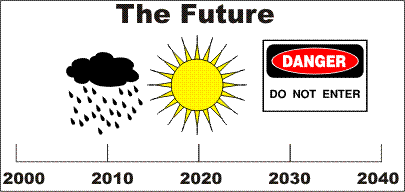Race relations will always be a little strained but will get gradually better, and the coming 4T will be no exception. The main reason is this: how can blonde-haired Aunt Sue remain upset at African Americans when her young nephew (let's say) is born with adorable curly hair and chocolate brown skin? Or copper-colored skin? etc. etc. How can Mrs. Crenshaw remain suspicious and bitterly angry at white people when her daughter brings home a funny, sweet boyfriend who helps do her dishes and take out her trash?
Intermarriages keep happening between latinos and blacks, whites and latinos, and blacks and whites, etc. These marriages are producing stable families with bright, cute, super-achieving kids. The more inter-racial people are walking around, the less race is going to matter. This takes time, painfully slowly even. But we are much farther into this vision of race than we were in, say, 1960. Aw hell what do I know. Of course I could be wrong.
- Join Date
- Jul 2001
- Posts
- 1,038

